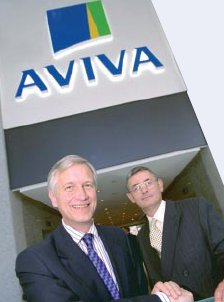
Ask The Expert
Have a question for one of our organisational change experts?
Norwich Union - the art of analysis
A typical, modern business enterprise is a complex fusion of processes, management functions, technology and organisational structure. With the advent of the web there is an increasing requirement to integrate business operations across the digital and physical worlds.
Forward thinking companies, such as Aviva plc, understand that this increased level of man-machine integration has to take full account of the business, technical and people aspects of doing business both electronically and physically. Norwich Union, part of the Aviva Group, recognised the need to forge a professional community of enterprise analysts and designers capable of developing and deploying such an approach.
Opportunity
The community is tasked with seamlessly translating strategic, ‘big picture’ thinking into intermediate and detailed designs capable of operational implementation. They need to effectively integrate the technical, business and organisational elements and combine them with flexibility and responsiveness to deliver real benefits into the business. CITI has been working closely with Norwich Union to develop its professional community of analysts and designers.
We were able to exploit our extensive research into how to profile professional communities of programme and project managers with its mix of technical specialists and managers and combine it with work we have done in the field of ‘enterprise blueprinting’. Norwich Union wanted a framework that it could use to define the roles and how they relate to one another.
Analysis and experience led to the identification of 10 distinct combinations of skills and knowledge and that led to the specification of 10 generic roles. It was found possible and helpful to distinguish between business and technical domain experts, as well as ‘hybrids’. In each domain there were analysts, integrators and architects and for each of these it was useful to distinguish three levels of practitioner competence - developing, established and advanced. This gave 9 of the roles: business architect, through to technical analyst. In addition it was found necessary to identify a role called technical specialist – those individuals that know a considerable amount about a specific subject – but not necessarily being an analyst!
Approach
Members of the community were then profiled using a tailor-made web-based questionnaire and face-to-face interviews according to three sets of criteria: mindset and approach, core knowledge, and enabling skills. Their responses were compared against an indicative norm, the CITI high performance group norm data set, in order to benchmark candidates against a common standard.
The feedback was provided to each candidate, giving specific comparisons and advice on personal development. It was also aggregated into a set of ‘population’ reports to senior management. These described the distribution of capability of the community, comparisons of actual to target distributions, and a development framework for building on the profiling work.
Outcome
Norwich Union is using the results of this analysis to develop its community and to achieve the appropriate mix of roles and capabilities needed to meet its future enterprise blueprinting needs. They will use the profiles to support the personal development plans of analysts and designers and to match individuals, roles and skills to development programmes and projects.

